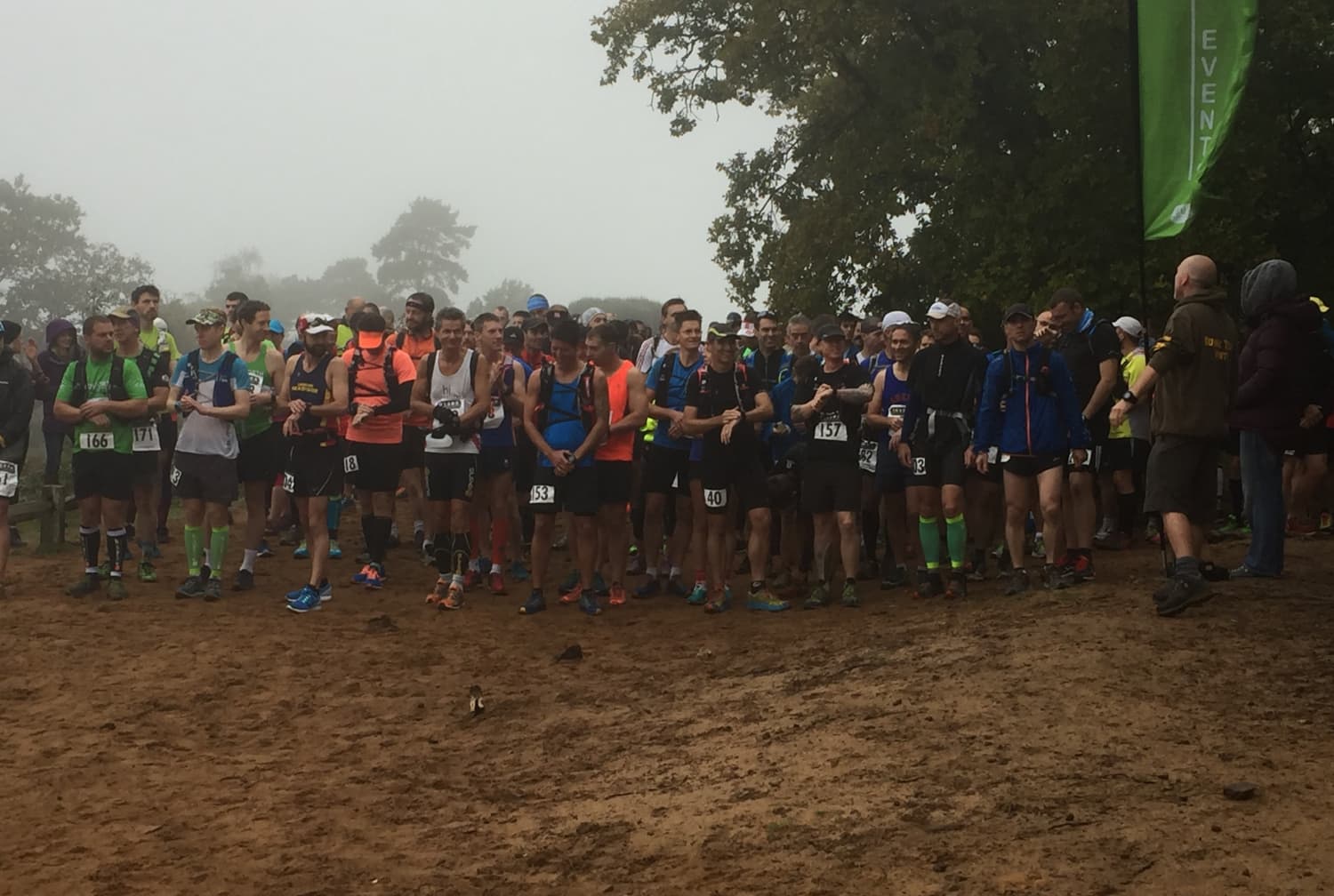
I’m running in my first ever 50-kilometre race. As the gun sounds, the small field of about 60 athletes heads off down a lane in the Gloucestershire countryside. The race is renowned for fast times, and a couple of athletes, including one of the best ultrarunners in the world, quickly pull ahead. After a few minutes I’m in third place and am beginning to harbour dreams of a podium finish. However, then an athlete suddenly comes flying past me at speed and disappears around the bend, in pursuit of the other two. At that pace, he seems to be a different breed from me. I assume that he must have arrived late at the start.
About ten miles later, I become aware of another runner just behind me. He overtakes and I manage to keep him close for a while, but he drifts out of sight as we begin to lap backmarkers on our five-mile loop. I feel disappointed, but am aware that a top five finish would still represent a decent result – if I can avoid being overtaken by anyone else, that is.
The road becomes more crowded as I hit the back of a marathon that has started on the same loop. I pick off the runners in ones and twos and it begins to feel a bit like a video game. As I pass a bigger group, I think I spot the runner who went off in second place. He’s running slowly and is clearly in trouble, but is it him? If so, I would be back in fourth place. My heart rate quickens as I get a little jolt of excitement and become more determined to maintain my pace.
By the time I reach the final loop, I’m finding it really hard. I have about three miles to go when I turn a corner and see the athlete who overtook me earlier walking up the hill. Suddenly, aware that I have a chance of making the podium after all, my brain dumps a massive load of adrenaline into my body and I immediately feel weak and shaky. The feeling is so severe that for a few seconds I can barely stand, let alone run. Trying to relax, I pass the runner with a grunt of encouragement and start to run as fast as I can – it’s essential that I quickly open up a gap so that he’ll give up any thought of staying with me.
I’m soon paying for the effort and am hanging on grimly for the finish. I don’t look back but just keep moving as best I can. A third place would definitely be something to treasure, but am I actually in third? All I can do is hope and try to keep my current position.
After what feels like an eternity, I turn into the finishing straight where I see my wife, Jane, cheering excitedly. Then I’m running under the banner – I’ve managed to hold off the other athlete! Jane hugs and congratulates me.
‘Am I third or fourth?’ I manage to ask through my gasping.
‘You’re first! You won!’
What?
I don’t believe her. I tell her that I know I’m third or fourth and ask her to check with the timekeepers.
She insists that I won, but I refuse to believe it. To humour me, she goes and talks to the timing officials, who are surprised that I have to ask. I still think it’s a mistake, and am still waiting for someone to object when I accept the trophy for first place an hour later.
I had somehow been in an exciting battle for victory while being completely oblivious! To Jane, standing on the side-lines watching the race unfold, it had been obvious. The leader dropped out through illness after a couple of laps, and the runner who had been promoted to first then started to struggle – it had been him that I’d passed. As for the latecomer who flew past me a few minutes into the race, that remains a mystery. As far as Jane or anyone else is concerned, he never existed. I still think about that sometimes, but I suppose it will forever remain a mystery.
One obvious takeaway from the race is the value of information. Since then, Jane or my crew always try to let me know if something is happening ahead or behind me, in case I’m not aware. Another is to never give up, and to assume nothing. You don’t know what might happen. We are quick to notice the factors beyond our control that can screw things up, but random events are just as likely to fall in our favour. In running, as in life, staying in the race and getting to the end is key.
Then there is the power of simply showing up. If you aren’t in the game, nothing is possible. Looking back to that race, I realise that I shouldn’t have won. A year later, I ran 11 minutes faster in freezing conditions and didn’t win. And even on that occasion, I only finished in second place rather than third because the British record holder got hypothermia and could only stagger bravely to the finish. I had got lucky again.
But is it actually luck to move up places when others drop out or struggle? After all, a race involves getting from the start to the finish and a lot of things can get in the way. In any race, especially ultramarathons, managing risk is one of the most important skills of the event.
When we line up at the start of a race, we can only compete against whoever has also turned up. And each time, once the dust has settled, it will have been someone’s day. If you turn up often enough, one day it will be yours.





